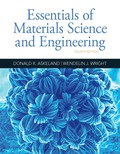
Essentials Of Materials Science And Engineering
4th Edition
ISBN: 9781337670845
Author: ASKELAND
Publisher: Cengage
expand_more
expand_more
format_list_bulleted
Question
Chapter 14, Problem 14.13P
Interpretation Introduction
Interpretation:
The ratio which increases the yield strength of magnesium by heat treatment and by alloying in comparison to aluminum slloy should be determined.
Concept Introduction:
The yield strength ratio (r) is calculated by using the following equation,
Where,
Expert Solution & Answer
Want to see the full answer?
Check out a sample textbook solution
Students have asked these similar questions
OK i need help. Please help me work thorought this with autocad. I am not sure where to begin but i need to draw this. Well if you read the question we did it in class and I got suepr confsued.
Write a C program using embedded assembler with a function to convert a digit (0 – 15) to the corresponding ASCII character representing the value in hexadecimal. For numbers 0 – 9, the output will be the characters '0' – '9', for numbers 10 – 15 the characters 'A' – 'F'. The entire core of the program must be written in symbolic instruction language; arrays may not be used. You may only use C to print the result.
Tip: This piece of C program will do the same thing:
character = number < 10 ? number + '0' : number + 55;
As a basis, you can use this program again , which increments a variable. Just replace the INC instruction with ADD and add a test (CMP) with some conditional jump.
A square column foundation has to carry a gross allowable load of 2005 kN (FS = 3). Given: D₤ = 1.7 m, y = 15.9 kN/m³, 0' = 34°, and c' = 0. Use Terzaghi's equation to determine the size of the foundation (B). Assume general shear failure. For o' = 34°, N₁
36.5 and Ny = 38.04.
(Enter your answer to three significant figures.)
B=2.16
m
Chapter 14 Solutions
Essentials Of Materials Science And Engineering
Ch. 14 - Prob. 14.1PCh. 14 - Prob. 14.2PCh. 14 - Prob. 14.3PCh. 14 - Prob. 14.4PCh. 14 - Prob. 14.5PCh. 14 - Prob. 14.6PCh. 14 - Prob. 14.7PCh. 14 - Prob. 14.8PCh. 14 - Prob. 14.9PCh. 14 - Prob. 14.10P
Ch. 14 - Prob. 14.11PCh. 14 - Prob. 14.12PCh. 14 - Prob. 14.13PCh. 14 - Prob. 14.14PCh. 14 - Prob. 14.15PCh. 14 - Prob. 14.16PCh. 14 - Prob. 14.17PCh. 14 - Prob. 14.18PCh. 14 - Prob. 14.19PCh. 14 - Prob. 14.20PCh. 14 - Prob. 14.21PCh. 14 - Prob. 14.22PCh. 14 - Prob. 14.23PCh. 14 - Prob. 14.24PCh. 14 - Prob. 14.25PCh. 14 - Prob. 14.26PCh. 14 - Prob. 14.27PCh. 14 - Prob. 14.28PCh. 14 - Prob. 14.29PCh. 14 - Prob. 14.30PCh. 14 - Prob. 14.31PCh. 14 - Prob. 14.32PCh. 14 - Prob. 14.33PCh. 14 - Prob. 14.34PCh. 14 - Prob. 14.35PCh. 14 - Prob. 14.36PCh. 14 - Prob. 14.37DPCh. 14 - Prob. 14.38DPCh. 14 - Prob. 14.39DPCh. 14 - Prob. 14.40DPCh. 14 - Prob. 14.41DPCh. 14 - Prob. 14.42DPCh. 14 - Prob. 14.43DPCh. 14 - Prob. 14.44CPCh. 14 - Prob. K14.1KPCh. 14 - Prob. K14.2KP
Knowledge Booster
Similar questions
- For the design of a shallow foundation, given the following: Soil: ' = 20° c=57 kN/m² Unit weight, y=18 kN/m³ Modulus of elasticity, E, = 1400 kN/m² Poisson's ratio, μs = 0.35 Foundation: L=2m B=1m D₁ =1m Calculate the ultimate bearing capacity. Use the equation: 1 qu= c'Ne Fes Fed Fec +qNqFqs FqdFqc + - BNF √s F√d F 2 For d'=20°, N = 14.83, N = 6.4, and N., = 5.39. (Enter your answer to three significant figures.) qu kN/m²arrow_forward1.0 m (Eccentricity in one direction only) = 0.15 m Qall = 0 1.5 m x 1.5 m Centerline An eccentrically loaded foundation is shown in the figure above. Use FS of 4 and determine the maximum allowable load that the foundation can carry if y = 16 kN/m³ and ' = 35°. Use Meyerhof's effective area method. For o' = 35°, N₁ = 33.30 and Ny = 48.03. (Enter your answer to three significant figures.) Qall kNarrow_forwardFigure 2 3) *** The circuit of Figure 3 is designed with W/L = 20/0.18, λ= 0, and ID = 0.25 mA. (Optional- 20 points) a) Compute the required gate bias voltage. b) With such a gate voltage, how much can W/L be increased while M1 remains in saturation? What is the maximum voltage gain that can be achieved as W/L increases? VDD = 1.8 V RD 2k - Vout Vin M₁ Figure 3arrow_forward
- 1) Rs = 4kQ, R₁ = 850 kQ, R₂ = 350 kQ, and R₁ = 4 kQ. The transistor parameters are VTP = -12 V, K'p = 40 µA / V², W/L = 80, and λ = 0.05 V-1. (50 Points) a) Determine IDQ and VSDQ. b) Find the small signal voltage gain. (Av) c) Determine the small signal circuit transconductance gain. (Ag = io/vi) d) Find the small signal output resistance. VDD = 10 V 2'; www www Figure 1 Ссarrow_forward4- In the system shown in the figure, the water velocity in the 12 in. diameter pipe is 8 ft/s. Determine the gage reading at position 1. Elevation 170 ft 1 Elevation 200 ft | 8 ft, 6-in.-diameter, 150 ft, 12-in.-diameter, f = 0.020 f = 0.020 A B Hints: the minor losses should consider the contraction loss at A and the expansion loss at B.arrow_forwardWhat is the moment of Inertia of this body? What is Ixx, Iyy, and Izzarrow_forward
- Q11arrow_forwardMethyl alcohol at 25°C (ρ = 789 kg/m³, μ = 5.6 × 10-4 kg/m∙s) flows through the system below at a rate of 0.015 m³/s. Fluid enters the suction line from reservoir 1 (left) through a sharp-edged inlet. The suction line is 10 cm commercial steel pipe, 15 m long. Flow passes through a pump with efficiency of 76%. Flow is discharged from the pump into a 5 cm line, through a fully open globe valve and a standard smooth threaded 90° elbow before reaching a long, straight discharge line. The discharge line is 5 cm commercial steel pipe, 200 m long. Flow then passes a second standard smooth threaded 90° elbow before discharging through a sharp-edged exit to reservoir 2 (right). Pipe lengths between the pump and valve, and connecting the second elbow to the exit are negligibly short compared to the suction and discharge lines. Volumes of reservoirs 1 and 2 are large compared to volumes extracted or supplied by the suction and discharge lines. Calculate the power that must be supplied to the…arrow_forwardQ15arrow_forward
arrow_back_ios
SEE MORE QUESTIONS
arrow_forward_ios
Recommended textbooks for you
 MATLAB: An Introduction with ApplicationsEngineeringISBN:9781119256830Author:Amos GilatPublisher:John Wiley & Sons Inc
MATLAB: An Introduction with ApplicationsEngineeringISBN:9781119256830Author:Amos GilatPublisher:John Wiley & Sons Inc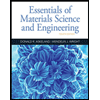 Essentials Of Materials Science And EngineeringEngineeringISBN:9781337385497Author:WRIGHT, Wendelin J.Publisher:Cengage,
Essentials Of Materials Science And EngineeringEngineeringISBN:9781337385497Author:WRIGHT, Wendelin J.Publisher:Cengage,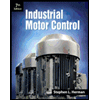 Industrial Motor ControlEngineeringISBN:9781133691808Author:Stephen HermanPublisher:Cengage Learning
Industrial Motor ControlEngineeringISBN:9781133691808Author:Stephen HermanPublisher:Cengage Learning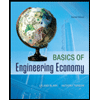 Basics Of Engineering EconomyEngineeringISBN:9780073376356Author:Leland Blank, Anthony TarquinPublisher:MCGRAW-HILL HIGHER EDUCATION
Basics Of Engineering EconomyEngineeringISBN:9780073376356Author:Leland Blank, Anthony TarquinPublisher:MCGRAW-HILL HIGHER EDUCATION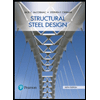 Structural Steel Design (6th Edition)EngineeringISBN:9780134589657Author:Jack C. McCormac, Stephen F. CsernakPublisher:PEARSON
Structural Steel Design (6th Edition)EngineeringISBN:9780134589657Author:Jack C. McCormac, Stephen F. CsernakPublisher:PEARSON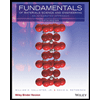 Fundamentals of Materials Science and Engineering...EngineeringISBN:9781119175483Author:William D. Callister Jr., David G. RethwischPublisher:WILEY
Fundamentals of Materials Science and Engineering...EngineeringISBN:9781119175483Author:William D. Callister Jr., David G. RethwischPublisher:WILEY

MATLAB: An Introduction with Applications
Engineering
ISBN:9781119256830
Author:Amos Gilat
Publisher:John Wiley & Sons Inc

Essentials Of Materials Science And Engineering
Engineering
ISBN:9781337385497
Author:WRIGHT, Wendelin J.
Publisher:Cengage,

Industrial Motor Control
Engineering
ISBN:9781133691808
Author:Stephen Herman
Publisher:Cengage Learning

Basics Of Engineering Economy
Engineering
ISBN:9780073376356
Author:Leland Blank, Anthony Tarquin
Publisher:MCGRAW-HILL HIGHER EDUCATION

Structural Steel Design (6th Edition)
Engineering
ISBN:9780134589657
Author:Jack C. McCormac, Stephen F. Csernak
Publisher:PEARSON

Fundamentals of Materials Science and Engineering...
Engineering
ISBN:9781119175483
Author:William D. Callister Jr., David G. Rethwisch
Publisher:WILEY